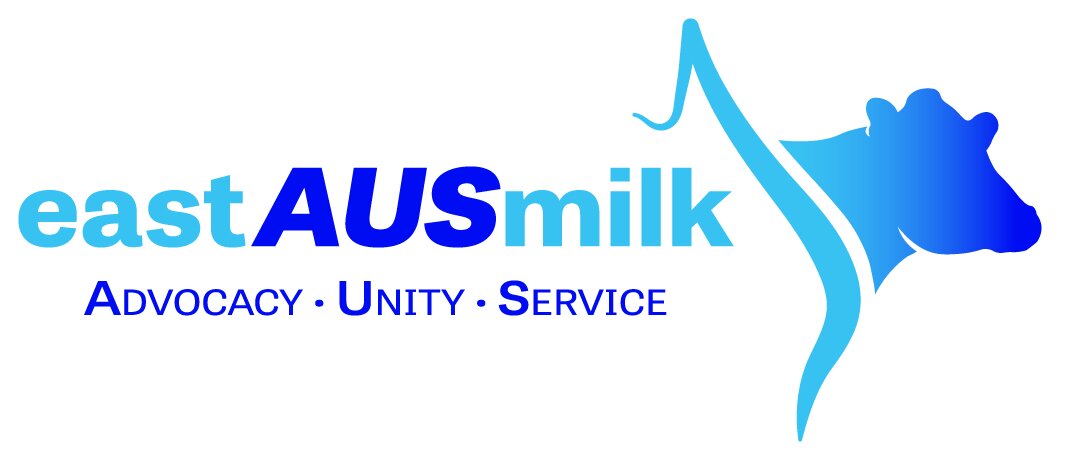Ekka 2022: Henry family celebrates five generations of showing dairy cattle at the Ekka
THERE'S no doubt the dairy industry runs in the blood of many families and it would be hard to argue that there was a better example at this year's Ekka than the Henry family.
A staple of the Royal Queensland Show's dairy competition, the Henry's introduced a fifth generation of the family to the judging ring with three-year-old Liv.
Representing the family's White Park and Tara Illawarra studs, Liv was flanked by her father Matt and her grandfather Mike as she helped parade cattle in an Ekka ring for the first time.
"Our family has been showing dairy cattle for a long time, generations in fact," Matt Henry told the Queensland Country Life.
"Obviously it's pretty special for my daughter to be able to show here with us and for my dad to be here as well makes it three generations showing together, which is pretty special."
The COVID-19 pandemic has meant the Henrys have been unable to visit the Ekka for the past two years, but Matt said the family had been eagerly awaiting the chance to enter the ring on Monday.
"It's a bit of a tradition for us to show here and I have a lot fond memories of the Brisbane show from when I was a kid," he said.
"Hopefully Liv will be able to look back on her days at the show when she's a bit older because it is pretty special to come along as a kid.
"She's been practicing with a calf at our place near Toowoomba, but she has been pretty excited to come to the Ekka.
"We have been to other shows where she has been able to have a go, but this her first Ekka where she's been old enough to have a go."
Mr Henry said he was hopeful his daughter would carry on the tradition of showing dairy cattle at the Ekka, which was first started by his great-grandfather.
"I hope we're able to carry the tradition on for Liv's generation and beyond, but it is a bit difficult to say," he said.
"Every year it gets more challenging to bring cattle in for the show, but we will certainly like to keep it going.
"It's given me so many good memories and it is always special to come with your family, so I'm hoping we can continue on for hopefully a long time to come."
As well as celebrating a fifth generation entering the judging ring, the Henry family also tasted plenty of success in the Illawarra competition by taking out the champion intermediate female with White Park Joyce 38 as well as the reserve champion junior female with Mash Rosso Beauty alongside the Bourke family.
Future Feed’s Dr Breanna Roque discusses benefits of using seaweed as fodder during ABS 2022 Beef Conference
The topic of Dr Roque's talk was is seaweed the solution?
THE latest research into the benefits of using seaweed varieties as cattle fodder to help drive down methane emissions was at the forefront of an industry summit this week.
Future Feed's Dr Breanna Roque was one of several keynote speakers to address the crowd of producers during ABS' 2022 Beef Conference in Tamworth this week and highlighted some of the promising research within the space of using seaweed as livestock feed.
Specialising in the Asparagopsis variety of seaweed, the company has monitored its benefits through a variety of feeding programs across different livestock during the past decade.
During the presentation, Dr Roque highlighted four major trials which indicated that Asparagopsis "can significantly reduce methane emissions in cattle".
The first experiment was a 70-day trial conducted with sheep that showed an 80 per cent reduction in methane emissions with a three per cent feed inclusion, while the second trial was a 14-day study with dairy cattle which indicated a 67pc reduction with a one pc feed inclusion.
The third trial which included Brahman and Angus Cattle, as well as the fourth trial with a variety of beef cattle, also yielded promising results with reductions as high as 80pc with varying feed inclusions.
The topic created a robust question and answer period following Dr Roque's talk, which was highlighted by a number of questions ranging from when the product may be available to what the impact of harvesting the seaweed would have on the environment.
"In Australia, New Zealand and Hawaii, Asparagopsis is native and so it plays a really important part of the ecosystems in these oceans," Dr Roque said.
"It also grows wild in other parts of the world, but it is considered invasive in places like Portugal and all through the Mediterranean, which also offers some exciting opportunities as well.
"The licencees we have in the areas where it is native are looking at supplementing wild harvested seaweed with tank systems where you can pump ocean water in and out.
"Another good aspect about this particular variety of seaweed is that it can act as a biofilter, so while it's growing it can be sequestering carbon from the atmosphere, as well as filtering contaminates out of the water if done correctly and what Future Feed is here for is to ensure it is done correctly."
"As far as what's next for us, the big thing we will be focusing on is investing in more trials as well as investing in marketing," she said.
"From there, the next big thing is certification and building a global certified trademark on the product.
"Another key focus is overcoming all of the regulatory barriers to make the product accessible. Overall, our hope is we can provide the livestock industry with a product they can use to help get methane reductions of 80pc or more and I think we are gaining traction."

